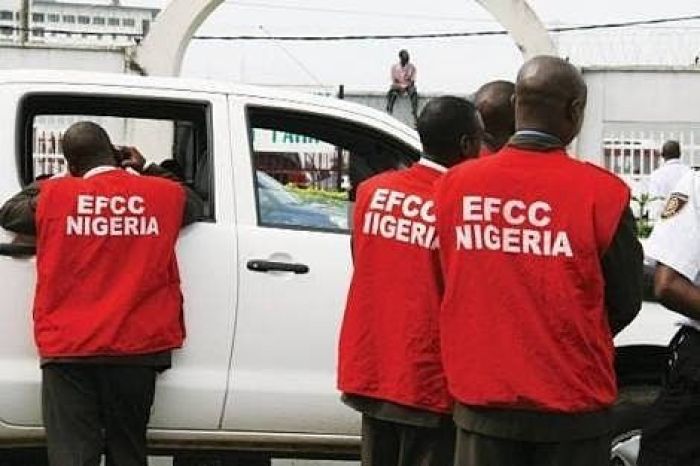The Economic and Financial Crimes Commission (EFCC) has said that the Office of the Attorney-General of the Federation (AGF) has constitutional power to take over any criminal case at any stage of investigation.

EFCC spokesman, Tony Orilade, said this on Sunday.
Mr Orilade was reacting to the takeover of the case of alleged N25 billion fraud filed against Senator Danjuma Goje by the commission.
Orilade said that by virtue of the existing law, the office of the AGF has the power to take over any criminal case at any stage.
“And that is exactly what has happened,” he said.The AGF’s office had on Friday taken over Goje’s criminal case.
Goje was until last Thursday a contender for the office of Senate President.
The Gombe senator withdrew from the race and immediately endorsed his rival Ahmad Lawan, after meeting with President Muhammadu Buhari.
Section 174 (1a) of the 1999 Constitution States that the AGF shall have the power “to institute and undertake criminal proceedings against any person before any court of law in Nigeria, other than a court-martial, in respect of any offence created by or under any Act of the National Assembly.”
Also, subsection (1b) says “to takeover and continue any such proceedings that may have been instituted by any other authority or person.”
EFCC had been prosecuting Goje for almost eight years until Friday.
Mr Orilade was reacting to the takeover of the case of alleged N25 billion fraud filed against Senator Danjuma Goje by the commission.
Orilade said that by virtue of the existing law, the office of the AGF has the power to take over any criminal case at any stage.
“And that is exactly what has happened,” he said.The AGF’s office had on Friday taken over Goje’s criminal case.
Goje was until last Thursday a contender for the office of Senate President.
The Gombe senator withdrew from the race and immediately endorsed his rival Ahmad Lawan, after meeting with President Muhammadu Buhari.
Section 174 (1a) of the 1999 Constitution States that the AGF shall have the power “to institute and undertake criminal proceedings against any person before any court of law in Nigeria, other than a court-martial, in respect of any offence created by or under any Act of the National Assembly.”
Also, subsection (1b) says “to takeover and continue any such proceedings that may have been instituted by any other authority or person.”
EFCC had been prosecuting Goje for almost eight years until Friday.







